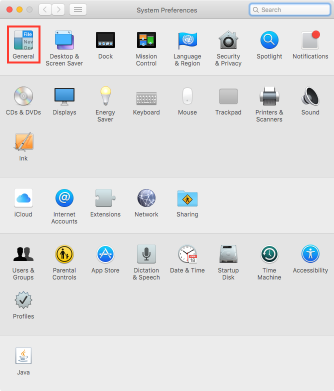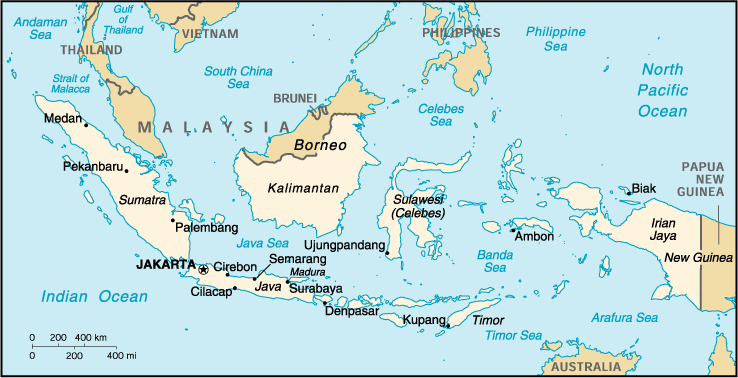Java™ SE Development Kit 7, Update 91 (JDK 7u91)
The full version string for this update release is 1.7.0_91-b15 (where 'b' means 'build'). The version number is 7u91.
This update release contains several enhancements and changes including the following:
Install the latest Java from Oracle. Reboot you Capitan hardware box (A Macbookpro for me) Drag you CS5 app to the garbage box. Install CS5 from Adobe download server. Enter your license Key. Start photoshop CS5. All is working now. Screenshot with Photoshop CS5 working with El Capitan.
I realized after a little research that when El Capitan wiped out the old Java and installed the newest version of the java runtime, it did not install the JDK. If you have just upgraded to El Capitan and you see the message 'It appears you do not have a Java Runtime installed' when checking in Terminal with 'java -version'. This tutorial contains step by step instructions for installing hadoop 2.x on Mac OS X El Capitan. These instructions should work on other Mac OS X versions such as Yosemite and Sierra. This tutorial uses pseudo-distributed mode for running hadoop which allows us to use a single machine to run different components of the system in different.
IANA Data 2015f
JDK 7u91 contains IANA time zone data version 2015f. For more information, refer to Timezone Data Versions in the JRE Software.
Security Baselines
The security baselines for the Java Runtime Environment (JRE) at the time of the release of JDK 7u91 are specified in the following table:
| JRE Family Version | JRE Security Baseline (Full Version String) |
|---|---|
| 7 | 1.7.0_91 |
| 6 | 1.6.0_105 |
For more information about security baselines, see Deploying Java Applets With Family JRE Versions in Java Plug-in for Internet Explorer.
JRE Expiration Date
The JRE expires whenever a new release with security vulnerability fixes becomes available. Critical patch updates, which contain security vulnerability fixes, are announced one year in advance on Critical Patch Updates, Security Alerts and Third Party Bulletin. This JRE (version 7u91) will expire with the release of the next critical patch update scheduled for January 19, 2016.
Java El Capitan 10
For systems unable to reach the Oracle Servers, a secondary mechanism expires this JRE (version 7u91) on February 20, 2015. After either condition is met (new release becoming available or expiration date reached), the JRE will provide additional warnings and reminders to users to update to the newer version. For more information, see JRE Expiration Date.
Notes
Java 6 El Capitan
When running on OSX 10.11 'El Capitan', when SIP is enabled, certain environment variables intended for debugging applications, such asDYLD_LIBRARY_PATH, may be stripped from the environment when running Java from the command line or when double-clicking a JAR file. Applications should not rely on these variables in a production environment, they are only intended for debugging during development. 
New Features and Changes
The following are some of the notable new features and changes in this release:
dns_lookup_realm should be false by default
The dns_lookup_realm setting in Kerberos' krb5.conf file is by default false.
See JDK-8080637.
Support ISO 4217 'Current funds codes' table (A.2)
This enhancement adds support for ISO 4217 table A.2 fund codes. Previously the JDK only supported those currencies listed in table A.1.
See JDK-8074350.
DHKeyPairs with Bit Lengths Greater Than 1024
DHKeyPair generation now supports use of key sizes up to 2048 bits. Key size must be multiples of 64 if less than 1024 bits, or 2048 bits.
See JDK-8062834.
Bug Fixes
This release contains fixes for security vulnerabilities. For more information, see Oracle Java SE Critical Patch Update Advisory. For a list of bug fixes included in this release, see JDK 7u91 Bug Fixes page.
The following are some of the notable bug fixes included in this release:
Use Safe Prime Diffie-Hellman Groups
In the JDK SSL/TLS implementation (SunJSSE provider), safe prime Diffie-Hellman groups are used by default. Users can customize Diffie-Hellman groups with the security property, 'jdk.tls.server.defaultDHEParameters'.
Kerberos changes for applications running with security manager
This JDK release introduces some changes to how Kerberos requests are handled when a security manager is present.
Note that if a security manager is installed while a KerberosPricipal is being created, a {@link ServicePermission} must be granted and the service principal of the permission must minimally be inside the {@code KerberosPrincipal}'s realm.
For example, if the result of {@code new KerberosPrincipal('user')} is {@code user@EXAMPLE.COM}, then a {@code ServicePermission} with service principal {@code host/www.example.com@EXAMPLE.COM} (and any action) must be granted.
Also note that if a single GSS-API principal entity that contains a Kerberos name element without providing its realm is being created via the org.ietf.jgss.GSSName interface and a security manager is installed, then this release introduces a new requirement. A {@link javax.security.auth.kerberos.ServicePermission ServicePermission} must be granted and the service principal of the permission must minimally be inside the Kerberos name element's realm.
For example, if the result of {@link GSSManager#createName(String, Oid) createName('user', NT_USER_NAME)} contains a Kerberos name element {@code user@EXAMPLE.COM}, then a {@code ServicePermission} with service principal {@code host/www.example.com@EXAMPLE.COM} (and any action) must be granted. Otherwise, the creation will throw a {@link GSSException} containing the {@code GSSException.FAILURE} error code.
JDK-8048030 (not public)
Hotspot should use PICL interface to get cacheline size on SPARC
The libpicl library is now required on Solaris/SPARC to determine the size of the cache lines. In case the library is not present or the PICL service is not available the JVM will display a warning and compiler optimizations that utilize the BIS (Block Initializing Store) instruction will be turned off.
See JDK-8056124.

Preloading libjsig.dylib causes deadlock when signal() is called
Applications need to preload the libjsig library to enable signal chaining. Previously, on OS X, after libjsig.dylib was preloaded, any call from native code to signal() caused a deadlock. This has been corrected.
See JDK-8072147.